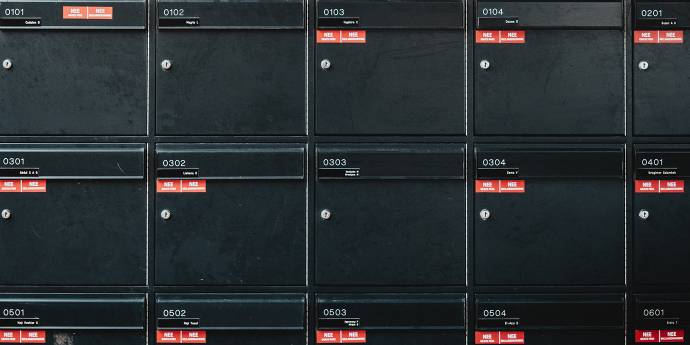Simple steps to build a solid foundation for privacy
Training, empowerment and leadership from the boardroom are vital in establishing an effective privacy culture.
The Institute of Directors has been pushing for the home addresses of company directors to remain private.

While companies are working hard to better protect New Zealanders’ personal details following the introduction of the Privacy Act 2020, the directors of those same companies are left feeling exposed as their home addresses continue to be made freely available on the Companies Register.
It is not only the increased risk of the director and their families being confronted by disgruntled staff, customers or others that is concerning.
Directors’ communications with the company’s board are put at greater risk of industrial espionage or cybercrime, as directors’ homes are typically less secure than work offices.
Some directors may be working in particularly sensitive areas and have an even greater need to keep their residential details confidential, yet there is currently no effective mechanism for doing so. This is despite provisions within the Electoral Act for individuals who feel threatened to be registered on an unpublished electoral roll to keep their details private.
Directors do not want to hide, just to be safe. Being accountable is part of their role, but sometimes the risk to directors can overshadow this. Indeed, occasionally grievances against a company are for something it has little or no control over.
Organisations can find themselves and their reputations swept up in the swirl of a misplaced or unfounded notion which, while theoretical, has real implications on the ground.
The 5G conspiracy theory for example, in which people believe the 5G wireless network helps spread the Covid-19 virus (among other things), gave rise to 16 individual cases of arson to cellphone towers last year.
The Companies Register, available online, needs to maintain its integrity and that means being transparent, accountable and accurate. The Institute of Directors (IoD) absolutely supports this. The register is, after all, our country’s central record about companies and their directors and plays an important role in supporting businesses and the economy.
Companies need to be transparent in their ownership and activities to foster the trust and certainty required for long-term investment, financial stability and business integrity. Where their directors live is irrelevant.
We, and others, have been calling for change for some time. And there are few strenuous objections. A 2017 Stuff poll found 67 per cent of the public supported making directors’ home addresses private. Because it makes sense.
And the Ministry of Business, Innovation and Employment (MBIE) has itself proposed allowing directors to use a service address instead of their private residence on the register – music to the IoD’s ears.
Providing a service address means directors could still be contacted and interact with shareholders, customers or government agencies as needed, but without jeopardising their and their families’ home life.
Despite this, nothing has changed. If anything, progress seems further away than ever. The issue reared its head again recently with MBIE’s proposal to introduce director identification numbers (DINs) – a unique number attributed to each director.
These numbers would make it easier to navigate the Companies Register by clearly delineating which director is which. Director names can be recorded differently throughout the register, making it hard to tell whether M Bloggs, director of Company A, is the same person as Mike Bloggs, director of Company B, or Michael Bloggs, director of company C, without having a residential address to match them against.
Once DINs come into play, there will be even less justification for directors’ residential addresses to be public. Yet, despite first being proposed in 2016, director identification numbers remain just that – a proposal.
The administrative burden of rolling out DINs is admittedly huge. But bundling this and the question of director residential addresses together means we’re no closer to a solution. It could be years away.
Meanwhile, directors and their families remain exposed.
The risk is real. In early 2018, Lyttelton residents received a leaflet containing the home addresses of Lyttelton Port Company directors.
In our time of high online connectivity, social media means information like this can spread even more rapidly than a door-to-door leaflet drop, and anyone could turn up on a director’s doorstep without warning.
Anecdotally, we are aware of a large business now dealing with this privacy concern as a matter of health and safety. The company has deemed it a high enough risk that it has put security measures in place, installing CCTV and monitoring the doors and windows of directors’ houses – some of which are also home to young children.
Shareholders, directors and the public must all be able to have confidence in the Companies Register. However, we do not believe directors’ home addresses are necessary to achieve this.
They certainly agree with us in countries like the United Kingdom, Canada, Hong Kong and Singapore, where directors can use a service address instead.
It is time we did the same here. Privacy and security should be available to everyone – including company directors.
Republished with permission from Stuff: Company directors deserve privacy and security too
Kirsten (KP) Patterson KP is the Chief Executive of the Institute of Directors. She is a qualified lawyer and a Distinguished Fellow of the Human Resources Institute of New Zealand, Co-deputy Chair of the Global Network of Directors Institutes (GNDI), Chair of the Brian Picot Ethical Leadership advisory board and was previously Chair of the Wellington Homeless Women’s Trust.